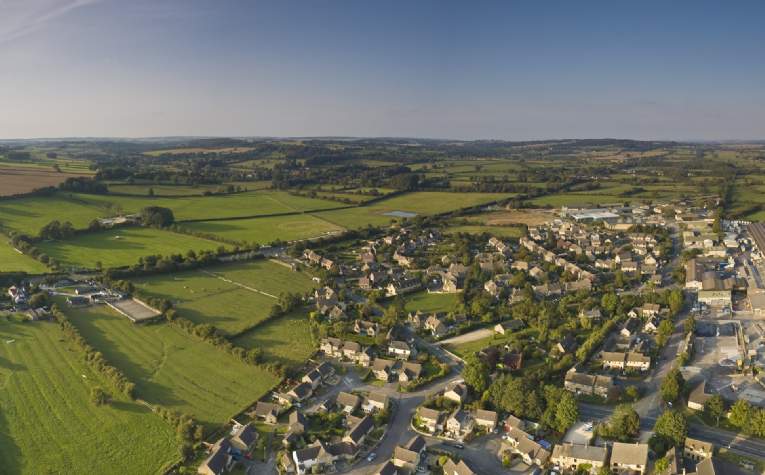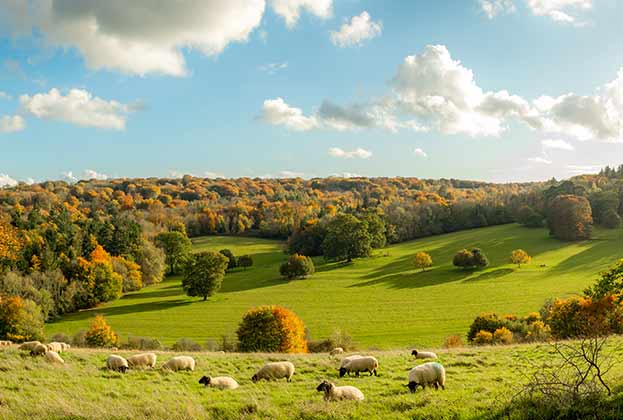In February 2023 Defra announced updates to its Biodiversity Net Gain (BNG) policy position following a 12-week consultation process launched in January 2022. As such, one year on from our original 10 things we’ve learnt about BNG blog, we review some of the latest updates and what still needs to be clarified.
- An increase to exemptions There has been confirmation that as well as Permitted Development rights and urgent Crown development, there will be further exemptions for de minimis areas and householder applications.
- Irreplaceable habitats Further legislation is expected to clarify what the definition of an irreplaceable habitat is, which will have a different requirement to the 10 per cent increase, with local planning authorities needing to be satisfied that the compensation proposed is suitable.
- Phased development Development which is permitted in phases will require additional BNG information for each phase. Approval of a biodiversity gain plan is needed prior to the commencement of each phase.
- S73 applications Mandatory BNG will only apply to Section 73 variation applications where the original permission was granted after November 2023.
- Time extensions To allow a longer period for developers and local planning authorities to adapt, BNG for small sites will not be mandatory until April 2024. Additionally, given the scale of Nationally Significant Infrastructure Projects (NSIPs), a two-year transition period has been announced, with mandatory BNG being applicable for NSIPs from November 2025.
- Stacking and bundling Land managers can sell both biodiversity units and nutrient credits from the same intervention, such as the creation of a wetland or woodland. Environmental grants, such as Environmental Land Management, can also be uplifted to provide BNG, provided it is clear what the original grant funding is for. For example, if you created a modified grassland for a grant payment, you could then take a baseline from this and improve the habitat condition beyond the requirements of the grant to create biodiversity units for sale into the BNG market.
- Above 10 per cent sales Developers that exceed their biodiversity gain objective on-site can then sell any additional units they create as off-site units for another development. However, this will only be permitted if the excess gain is registered, and there is genuine additionality for the excess units sold – that is, the development went above and beyond what was required on-site.
- Biodiversity gain site register Natural England will function as the operator of the biodiversity gain site register, to record allocations of off-site units and make the information publicly available, but it will not act as a marketplace. Six weeks is expected to be the timeframe for application determination.
- Statutory biodiversity credits Natural England will sell statutory biodiversity credits but only on a temporary basis with the intention to phase out their availability once the market has matured. The statutory biodiversity credit price will be published six months in advance of mandatory BNG, so it is expected around May, however this price will be intentionally uncompetitive relative to the private biodiversity unit market.
- Habitat banking Habitats created after 30 January 2020 will be eligible for registration and sale of units. Any enhancements before this date are not eligible, and will need to be re-baselined to allow for sales. There will not be a time limit on how long units can be banked before they are allocated. The habitat bank can effectively be split dependent on how many are needed for each development, with separate 30-year agreements for separate developers.
For developers and landowners the latest update provides some welcome clarity, but there are still some unanswered questions. The two most pressing are clarification on the tax implications for land designated for BNG and confirmation as to what happens to a site after the 30 years contractual period has passed. These need to be addressed so that landowners can fully commit to BNG, ahead of its November start date.
Further information
Contact George Marffy or Jon Dearsley
.jpg)
.jpg)
.jpg)

.jpg)
.jpg)
.jpg)
.jpg)
.jpg)
.jpg)
